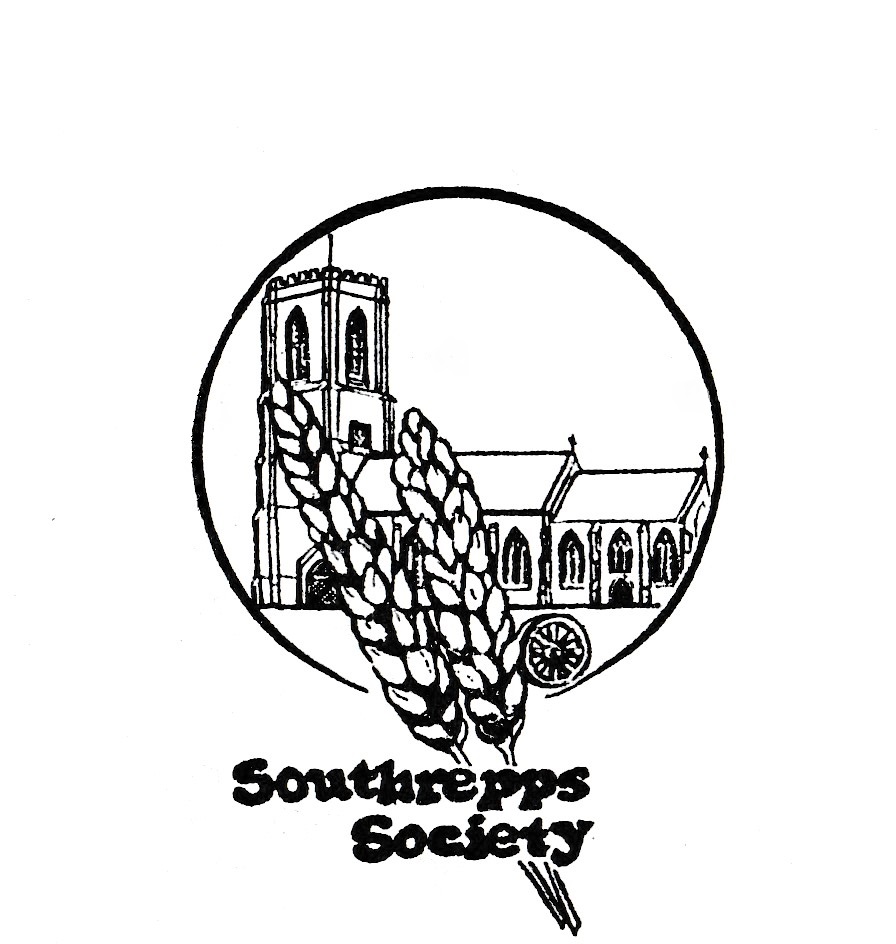Author Michael Strong, Lena’s son
Edward Grey was born in 1875 in Southrepps, son of Edward Grey and Sarah Dixon. The first ship he served on was HMS Impregnable in 1892. Alice Cubitt was born to Jane Cubitt in West Beckham workhouse in 1880. Alice lived in Bay Cottage High Street.
Edward Grey (1875-1921) and Alice Cubitt (1880-1967) and family
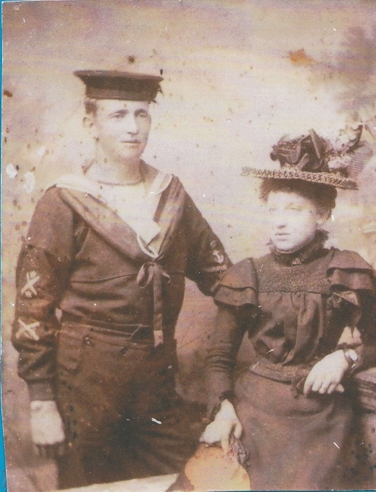
Edward joined the Royal Navy at the age of eighteen. He served on several different ships, eventually he was promoted to the rank of Petty Officer. One of his pastimes was music, he owned a violin. When he came home on leave, he would visit the local public houses and entertain the locals. The evening would ultimately develop into a singsong, Edward would seldom have to pay for his own beer and he would usually arrive home in good humour. It was on one of his visits to the Cross Keys, public house in North Walsham that he met Alice Cubitt, a young barmaid. Eventually they fell in love and were married in 1899. Unfortunately he was invalided out from the Royal Navy through ill-health in 1900. Having been raised in the countryside, one of his main interests was wildlife. With the help of excellent references, he was able to secure a position on a large estate in Cambridgeshire as gamekeeper. During their time in Cambridgeshire he and Alice raised several children.
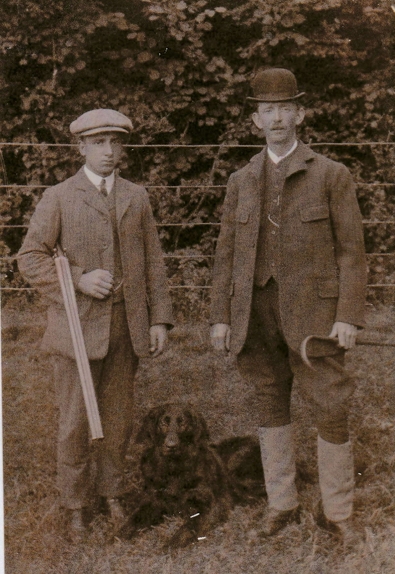
In 1914 at the outbreak of WWI, Edward was now Head gamekeeper, persons not involved in war work were conscripted to work in munitions for the duration of the war. He was conscripted to work in a factory that manufactured gunpowder. Thus he was required to leave his employment as gamekeeper and the family returned to Southrepps. After four years in a polluted atmosphere he was diagnosed with TB, which was fatal, he passed away in 1921, leaving Alice with eight children. They lived in a two bedroomed cottage in Southrepps Street (High Street). The turmoil must have been horrendous. Some of the children were called by nicknames, The eldest Lena, then Albert, Audrey, Cecil (Flip), Charlie (Midget), David, Doreen (Deenie) and the youngest Muir. Lena was the only one to have moved out to work in Overstrand. Alice was expected to provide for the family (no benefits in those days).
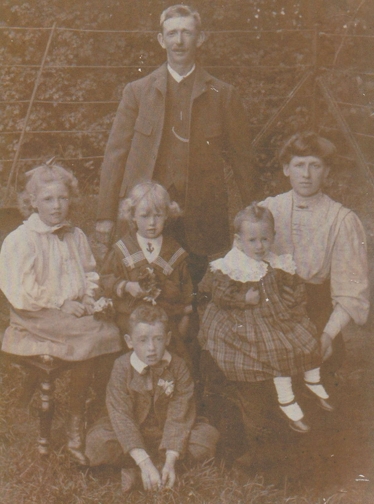
The village charity “poor box” provided a pittance for those in desperation. The recipient would be given a menial task in return, such as scrubbing out the village hall, or Church etc. During the holiday season Alice would walk to the Cromer Links Hotel (Overstrand) via a footpath through Southrepps early in the morning to make beds etc for the guests, she would return again in the afternoon to make sandwiches for afternoon tea.
Alice was expected to remove all the crusts from the sandwiches, she was given permission to take them home. Midget remembers distinctly that they used to sit at the table waiting for mother to arrive home. She would place the brown paper carrier bag containing the crusts on the table and in his words “we would strike at them like wolves”.
Alice would usually be summoned to help out in the village, with the hatched and dispatched, she was very efficient in everything she was involved in. Miraculously Alice managed to raise her family. As the boys reached manhood Albert married, he became father to three children, John, Peter, and Madeline. Unfortunately Albert contracted TB and passed away at an early age. His wife remarried and John and Peter were brought up in Gimingham by the grandparents on their mothers side.
Audrey the academic of the family secured employment as a company secretary in London. She married a police officer, they had one daughter Pam, unfortunately her marriage did not last. Flip married and settled in Southrepps where he and his wife raised two children Derek and Betty, sadly he was to be widowed prematurely. Flip was a popular footballer and he became highly respected as a goal keeper for Southrepps, a role he maintained until he reached middle age. Deenie married in approximately 1937 and gave birth to a son Clifford in 1938. She and her husband divorced a couple of years later and her son was raised by his father’s parents.
At the outbreak of WW2, Alice’s sons joined the forces. Flip became a sergeant in Gibraltar, he was injured and hospitalised for several months. Midget served in the tank corps, David was invalided from the army through ill-health, and Muir served in the RAF.
During the war Alice was in her element. Having been appointed the village ARP warden (Air-raid precaution) she would patrol the street with her steel helmet with a large W painted on the front of her tin hat, her gas mask hanging from her shoulder. She became the main stay in fund raising during the war years. She arranged dances and various functions to entertain the troops and raise funds.
Alice would visit her daughter Lena in Mundesley, usually every week, Southrepps was not on the bus route to Mundesley, occasionally if she was lucky, she would walk to Gimingham pound and catch the North Walsham bus to her destination, more often than not she would walk both ways, “three miles each way” with a bag full of pastries. Although financially she struggled to survive, her generosity was almost beyond description. It gave her pleasure to give to others. With David back home and in reasonably good health, he was also in full time employment as a commercial transport driver. Alice had never had it so good, with cash coming in on a regular basis. David never had any girl friend that I am aware of, he devoted his life to his mother.
Alice had an obsession for collecting military souvenirs. Her mantelpiece was covered with lots of ammunition which had been deactivated, all highly polished. The cloth attached to the mantle was covered with brass badges and buttons of every description all gleaming in the firelight. When Flip came home on leave, he called in to see his mother and noticed that she had placed two anti-aircraft shells inside the fender, one on each side of the fireplace. Of course they were highly polished, he identified them as Bofor shells, they were quite warm to touch being so close to the fire. After further examination he almost had a fit as he discovered they had NOT been deactivated and were highly dangerous. He rushed out of the house and placed them at the bottom of the garden where they remained until they could be disposed of! Where she acquired them from never came to light, there was an ack-ack battery with a Bofor gun sited on the Gimingham road, but how they came to be in her possession remains a mystery.
Alice was no stranger to explosives, I used to enjoy listening to Auntie Audrey reminiscence of when she was a child in Cambridgeshire. The house they lived in had a wall oven which most houses used for baking. The oven was built into the wall with a fire underneath which was covered with a small iron door. The ash pan was underneath the fire, sometimes on baking day Alice would complain that the fire would not draw, due to a build up of soot in the flue. She would then remove the gunpowder from a couple of Edwards 12 bore cartridges, screw it up tight in a ball of brown paper and toss in the fire, quickly closing the door and holding it shut with a pair of tongs, “There would be a whooph” smoke would come belching through the aperture around the door and dust from the ash-pan, but , apparently the blast would do the trick and remove the soot behind the oven and allow her to continue baking, which was not one of her greatest attributes. Many years later I remember Midget taking a bite from one of her short-cakes, he said “what the hell have you put in these mother you could ride to London on this”. I expect poor Alice could hardly afford the ingredients in the old days.
Charlie and Muir married their lady friends. Charlie was blessed with a son Andrew and Muir two daughters. Deenie remarried and had a second son John. They settled in London her husband worked at the Savoy Hotel. Audrey remained single after the breakdown of her marriage; she centred her life around Pam. She realised the importance of education and made sure her daughter received the best she could afford. Pam obtained grades to qualify for teaching, but it was not to be. She used to spend her holidays with her aunt Lena in Mundesley. It was here she met a local lad, Geoffrey. Unfortunately Audrey was hospitalised for a few weeks, during that time Pam and Geoffrey became man and wife. Audrey was not aware until she was discharged from hospital. She was devastated. Pam soon became pregnant and eventually was the mother to six children. Pam and family emigrated to Australia.
Audrey was employed in the legal profession for most of her working life. She decided to take driving lessons when she was about 60. She asked me to find her a car. I found a Ford Prefect, which I delivered to London. She was delighted. I stayed overnight in her flat, after we had a meal and we visited Deenie. Her flat looked more like an Aladdin’s cave, contraband in very room. Audrey failed several driving tests, but she was strong willed and she persevered. Before she passed her test, she would remove her L plates and drive to Norfolk at night when there was less traffic on the road. I often had to repair the coachwork (knock a few dents etc) when she landed. She arrived one night with a roadside paraffin lamp embedded in the nearside wing, but it was never her fault! She did eventually pass her test. When she was staying with her sister in Mundesley her favourite pastime was to visit local sale grounds especially Stalham, she would often arrive home with a piece of furniture tied to the roof of her car, or a box of sundries in the boot. I do not recall Audrey ever smoking, but she suffered from emphysema. On her retirement she purchased a cottage in Southrepps and managed the Post Office for a few years, she passed away suddenly in her late sixties.
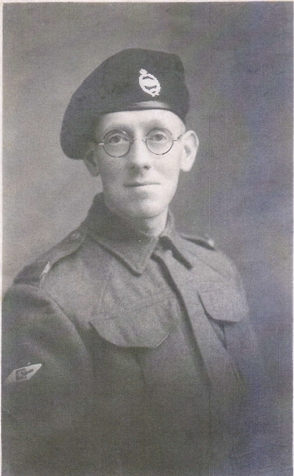
Charlie (Midget) was employed as a heavy goods driver. It came to and end following a horrific accident, when he was electrocuted when his vehicle came in contact with an overhead power cable which was situated over a ramp. He had reservations prior to the accident, but his employer was adamant that it was safe to tip his vehicle under the power cable and suggested a trial run. It was then that he realised his fears were correct. Whilst standing outside his vehicle he was in no doubt, he reached inside the cab to operate the tipping lever to prevent the container from elevating further, but it was too late, it touched the power cable. He received a massive shock; he did survive but was in hospital for several weeks. He found employment in a garage as he was unable to continue as a heavy goods driver. Mechanical work was part of his life, helping friends at weekends was one of his pastimes. Popularity was one of his attributes, he had a wonderful sense of humour, a generous nature, and many friends. Sadly he passed away in his sixties.
Flip was a master decorator; he was self-employed.
David was involved in a serious accident during the war years, it happened at Antingham during the hours of darkness. An Army vehicle appeared from a side road and crossed his path, the heavy goods vehicle that David was driving collided with the side of the army vehicle. Stringent rules were in place during the war regarding vehicle headlights, which had to be screened by law, it was probably a contributing factor to the cause of the accident. There were fatalities with the army personnel. It did affect David greatly, although not injured physically, his nerves were in tatters. He was off work for some time and the incident was not mentioned. After the war he became a coach driver, an occupation that he enjoyed for many years. Finally he decided to take up painting and decorating which he continued until his retirement. After which he carried on with voluntary work, particularly with the Southrepps Bowls Club. The last few years of his life he suffered ill health. He passed away aged 86.
